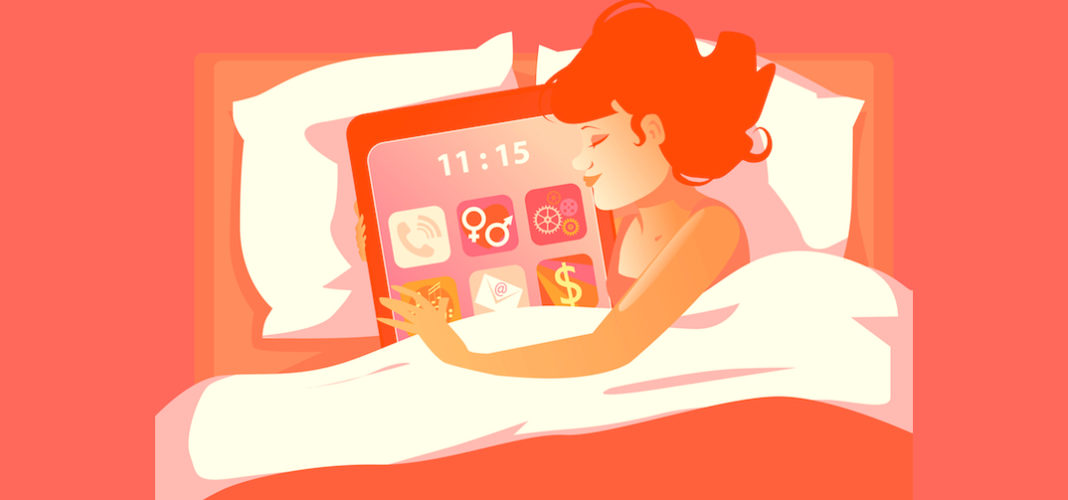If you sleep less, you eat more. You remember less. You get sick more often. You look bad. And poor sleep also leads to high blood pressure, missed workouts, irritability, poor decision making, and greatly impaired well-being.
These statistics, compiled by Online Psychology Degree, are startling:
1 in 3 smartphone owners would rather give up sex than their phones.
95% of people said that they regularly: browse the web, text or watch TV before trying to sleep.
90% of 18-29 year olds say they sleep with their phone in or right next to bed.
1 in 4 people don’t silence their cell phones before bed.
1 in 10 say they are awakened at least a few times a week by phone calls, texts or emails.
1 in 2 say if they wake in the night for no reason, they’ll check their phone right away.
In a study of people who use gadgets before bedtime:
63% of participants said that their sleep needs were not met during the week.
This is because a two-hour exposure to light from electronic displays suppressed melatonin by about 22% (melatonin is the chemical in your body that promotes sleep).
Regular late-night computer use isn’t just associated with sleep disorders but also with stress and depressing symptoms.
Sleep deprivation takes a toll:
1 in 5 car accidents are a result of drowsy driving.
3 in 10 workers will fall asleep at their desks this month.
Sleeping an average of less than 6 hours per night raises lifetime heart attack risk by 50%.
Prioritize eight hours of high-quality sleep ahead of all else. You will be more likely to have a good workout, get more done at your job, and treat your loved ones better when you put sleep first. Remember, every extra hour of sleep is a positive investment. It is not an expense.
I wish you all the best,
Dr. Samantha Boardman






